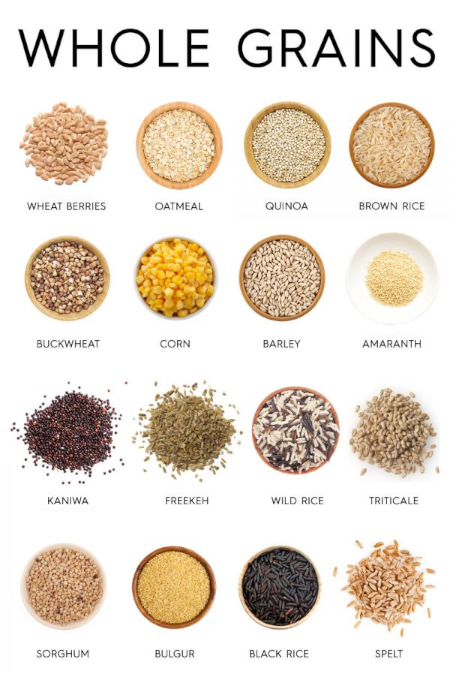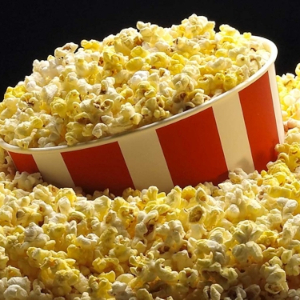I’m not kidding. Nor is Dr. Xiaoran Liu, author of a new study study exploring the association of whole grain consumption with cognitive decline. It may sound coo-coo, but popcorn has properties proven to reduce dementia risk…

The Dr. is an assistant professor of Internal Medicine at RUSH Medical College in Chicago.
“With Alzheimer’s disease and dementia affecting millions of Americans, finding ways to prevent the disease is a high public health priority,” Liu said. “It’s exciting to see that people could potentially lower their risk of dementia just by increasing their consumption of whole grains by a couple of servings a day.”
And he suggests popcorn may be the most acceptable way for some folks to get their whole grains…
Yes, popcorn is a whole grain
‘Whole grains’ are defined as grains with the outer husk (bran) intact, along with both internal components – the germ and the endosdperm. And that’s what popcorn is. Granted, it’s a special variety of corn that’s hard as a rock when harvested. You couldn’t serve it as a side at dinner. Or feed it to livestock. Even they would have trouble chewing and digesting it. It’s been specifically developed for a singular purpose: “The average American consumes about 56 quarts of popcorn per year. That means Americans [together] eat 18 billion quarts of popcorn every year!”
As impregnable as the popcorn krenel seems, it performs magic tricks when heated with a little oil in a deep saucepan. The small amount of moisture left inside after ripening explodes into steam, puffing up the kernel into the treat we all know, and most of us love.
Popcorn has long been known to be good for you. Like potatoes, popcorn itself is great. It’s the stuff you put on it – butter, artificial colours and flavouring dredges, and sometimes even caramel – that can make the ‘complete’ snack a dietary disaster.
What the Dr. did
According to the RUSH news release, “The analysis included 3,326 people with an average age of 75, without dementia, with 1,999, or 60 percent, being Black [subjects]. The participants were followed for an average of six years, and were asked to fill out a questionnaire on how much and how often they ate whole grains. Annual cognitive and memory tests were conducted where the participants were asked to remember lists of words and numbers in the correct order.”
What he found
Liu was initially surprised to find that the Black participants in his study scored consistently higher in the cognitive tests than the rest of the subjects.
But analysis of the results revealed that Black folks have a cultural advantage over non-blacks. They ate more whole grains, overall.
“Previous evidence suggests eating whole-grain was protective of heart disease and African Americans are more likely to develop heart disease” Liu said. “This may be a contributing factor in why we saw more of a benefit in African Americans. With rapidly aging populations, this highlights the need for more studies to explore this association to tailor dietary recommendations and help find ways to delay dementia.”
The takeaway
“With Alzheimer’s disease and dementia affecting millions of Americans, finding ways to prevent the disease is a high public health priority,” Liu observed. “It’s exciting to see that people could potentially lower their risk of dementia just by increasing their consumption of whole grains by a couple of servings a day.”
My take
According to Liu’s data, African American subjects in his study measured an average of 8.5 years younger, cognitively, than their non-Black counterparts. That’s something none of us can ignore. How much whole grain do you consume per day? Or, even, per week?
The key takeaway for me, from Liu’s study, is that I can have all the popcorn I want! Provided I don’t overdose it with salt or other unhealthy toppings. I currently prefer a dusting of garlic and rosemary. You may want to try a blend of chili, garlic and coriander. Or whatever strikes your fancy. Feel free to experiment!
And don’t worry about cost: Popcorn is one of the cheapest snacks you can buy – if you get the raw kernels and pop it yourself!
I suspect we could all stand to eat at least a little more… And with heart and cardiovascular disease in my family history on both sides, I’m primed to do whatever I can to minimize my risk!
~ Maggie J.

